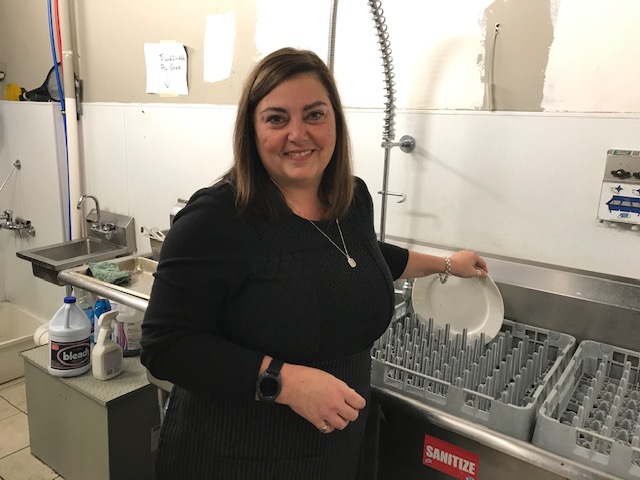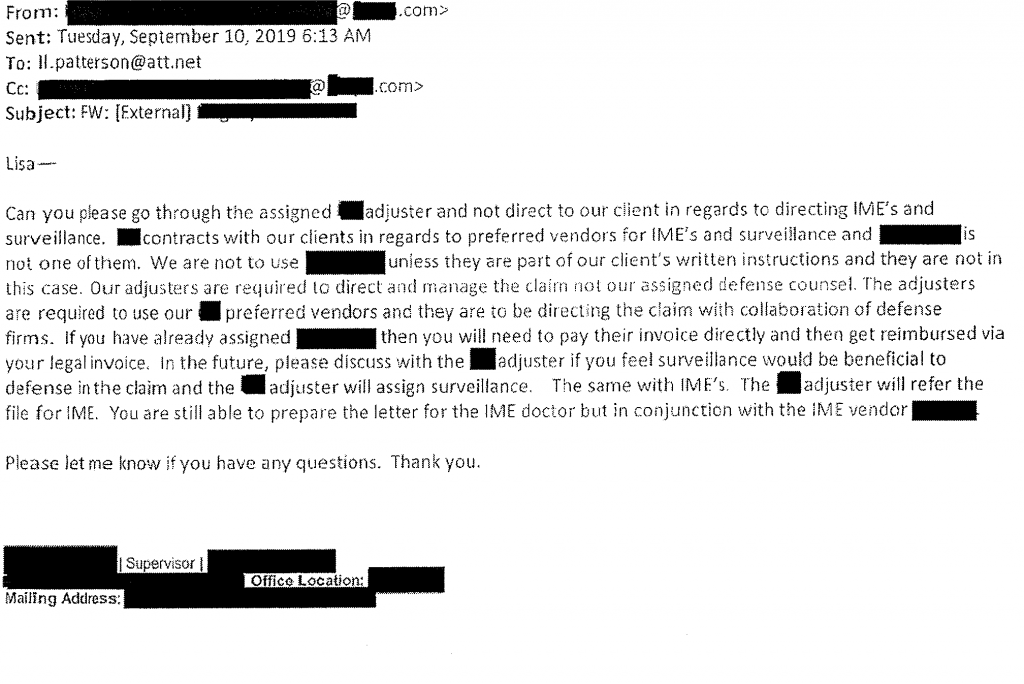LL Patterson LLC sponsors and volunteers at Community Meal at One Bistro 12/11/19
Lisa Patterson and her staff spread some Christmas spirit by volunteering at the Community Meal at One Bistro in Xenia on December 11, 2019, serving over 85 meals.
Lisa Patterson sponsored the Community Meal, and supports One Bistro’s mission to “provide a place where our neighbors eat and come together as one community.”
Check out the photos of great volunteers working and making our community a better place!















ARE SUBROGATED EMPLOYERS LIMITED BY THE AMOUNT CLAIMANT RECOUPS IN A PERSONAL INJURY CASE? NO.
Self- insured employers have subrogation rights by statute, applicable when an employee is injured by a negligent third party, and the employer incurs claim costs. In most cases, a statutory formula is used to calculate the amount a subrogated employer may recover in an agreed settlement of the injured worker’s personal injury case, and the recoverable amount is a ratio of the entire settlement taking into consideration the injured worker’s attorney fees and expenses, regardless of how much the employer has actually paid or will pay in the future. The statutory formula provides an incentive for the parties to settle and divides the money in an equitable fashion.
Recently, however, LL Patterson encountered a case where this did NOT happen, and we were able to recover for the employer an amount that exceeded the statutory formula calculation. One of the reasons we were able to obtain such an unusual and favorable result is because the injured worker and the third party tortfeasor aligned themselves and attempted to settle the tort case without the consent of the subrogated employer. The Ohio statute that governs workers’ compensation subrogation, R.C. 4123.931, actually addresses this situation and gives subrogated employers the right to recover EVERYTHING paid in the claim PLUS the estimated future claim costs against BOTH the injured worker AND the negligent third party. This “joint and several liability” provision of 4123.931 is a very powerful tool in the employer’s favor. It is also a fact pattern that we do not see play out very often for the reason that, it is not in the best interests of the injured worker or the third party to attempt to settle without the consent of the subrogated employer, as it opens them up to more liability than they would otherwise have under 4123.931.
The TPA, Defense Counsel, and you (The Client)?

I recently received this email from a Third Party Administrator. It is clear that this Claims Supervisor believes that it is her right to interfere with the legal relationship between attorney and a self-insured employer, but it raises the question- what should be the central objective for each of the professionals on your team? And more importantly what is your goal when utilizing defense counsel. Do you hire defense counsel to take hearings? Do you hire defense counsel to develop both a factual and medical defense? Do you want decisions made on your behalf in litigation by non-attorneys?
The impetus of this email is a growing trend in which litigation is being controlled by non-attorneys to further the economic objectives of the huge conglomerate Third Party Administrators and more specifically, blatant engagement in the unauthorized practice of law. Litigated claims are being directed not by the client through advice of counsel, but by non-attorney claims adjusters.
With that being said, in the 25 years I have practiced in this area, I have encountered amazing, dedicated Third Party adjusters. These experienced and seasoned professionals work hand in hand with defense counsel to provide for their client the best defense in Ohio Workers’ compensation claims. This teamwork is the stuff of 20+ years of successful representation of employers in Ohio with the main objective to 1) have the claim denied; 2) have the claim closed; 2) have the claim settled. These should be the only objectives of a workers’ compensation program. Not every case requires litigation, but when it does a client is best served if the Attorney can provide legal advice to the client to achieve those objectives.
It bears repeating, the Client has the authority to accept recommendations made by an attorney for legal defense. Defense counsel’s duties require them to communicate with, advise, counsel and advocate for our clients, the self-insured employers.
What you don’t see in this email:
- A discussion of what would be best for the claim.
- A discussion of what would be best for the client.
- What expert physician/surveillance company would be best for this individual claim.
- An acknowledgement that this self- insured employer has had 3 different claims examiners in 3 months, and this claims examiner had no familiarity with this case.
What you see in this email:
- Defense counsel is being asked not to speak directly to the self-insured employer.
- Claims adjusters, to the exclusion of self-insured employers, will make all decisions in the claim file.
- All vendors should be in the umbrella of companies provided by the TPA.
- A conflict between a counsel’s legal duties to the self-insured Employer and the TPA’s dedication to furthering their own interests.
Third party administrators are great at managing claims. Lawyers are great at conducting litigation. Isn’t it time the client takes control? How do you want your claims handled?
Things Clients Want to Know:
Q.In a system where the Employer must always be reactionary
how can Employers move towards proactive and take control of the claim?
A. Prior to any decision about the compensability of a claim an
employer must investigate whether the Employee was injured in the
course of and arising out of his or her employment. It is becoming
more frequent that injured workers do not disclose all prior medical
treatment and yet it is this very documentation that is crucial to the
determination of whether a claim is compensable. As the number of
Industrial Commission hearings continues to plummet, hearings are
being set sooner, forcing employers to participate in hearings where
increasingly they don’t have all the facts. The single most effective
thing an employer can do to control the timing of the processing of the
claim is to immediately send out a medical release and begin to
request medical records. This places the ball so to speak in to the
Employee’s court.
Without a medical release AND a list of medical providers the Employer
has the right to stop processing of the claim and file a motion to suspend
until the requested documentation is received. While a suspension does
nothing more than delay benefits and processing it allows the employer
the adequate time to mount a successful defense. While most use the
BWC release, many providers have their own release and those will also
need to be secured from the Employee. The Hearing Administrator
presides over any failure to provide a medical release and failure to
respond to medical records request. By the Employer doing their due
diligence, they insure that claims are not processed prior securing all the
facts. Once again, preparation is always key to being successful at the
hearing table. If you have having difficulty securing either medical
releases or medical records please contact us.
An amendment to R.C. 4123.512 extends the court appeal deadline where the parties intend to settle a claim.
RC 4123.512 sets for the procedure to appeal a final order from the Industrial Commission into the court of common pleas. A notice of appeal must be filed within 60 days of receipt of the Industrial Commission Order.
This 60 day appeal deadline can now be extended by either the claimant or employer upon the filing of a notice of intent to settle the claim. The notice of intent to settle the claim must meet several requirements:
- It must be filed with the administrator of the BWC;
- It must be filed within 30 days of receipt of the final Industrial Commission Order; and
- It must be served on the opposing party and the party’s representative.
If these criteria are met, the deadline for filing an appeal into common pleas court is extended to 150 days UNLESS the opposing party files an objection within 14 days.
WARNING! The intent of this provision is to allow parties time to settle claims. BUT it also sets up a scenario where benefits will otherwise be extended for an additional 150 days in a claim being appealed by the employer.

